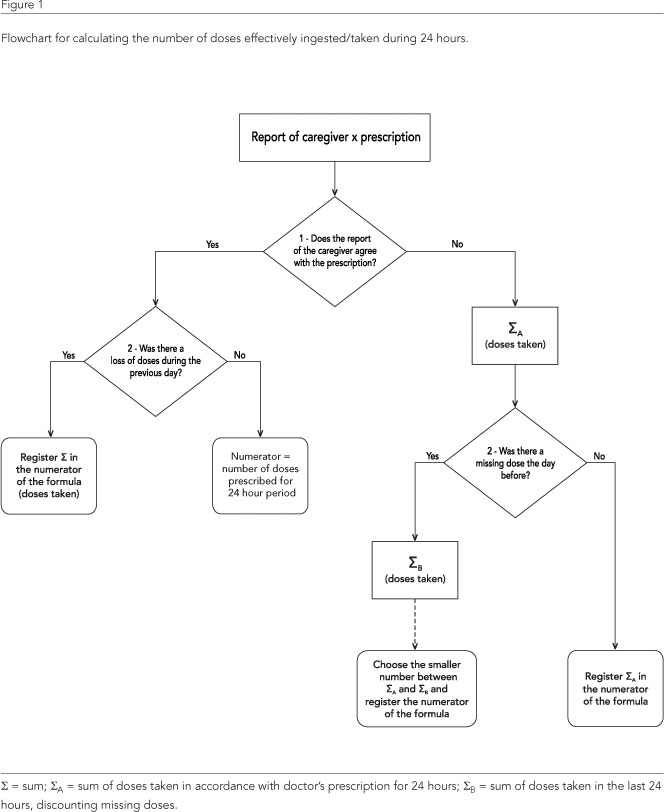The survival of children with AIDS has increased considerably with the use of more effective antiretrovirals, but the benefits of this therapy are limited by the difficulty of adherence to the treatment. This cross-sectional study aimed to estimate the prevalence of non-adherence to antiretrovirals among children residents in Porto Alegre, Rio Grande do Sul State, Brazil, and identifying associated factors. There were 194 child caregivers interviewed. The technique utilized to evaluate adherence allowed the detection of lack of understanding of the prescribed antiretroviral regimens, as well as conscious loss of doses. Non-adherence was defined when the child had taken less than 80% of the prescribed medication during the 24h period prior to the interview. A general prevalence of non-adherence was 49.5%, which was higher than that estimated. The non-institutional caregivers had a prevalence rate of 55.7%, while the institutional caregivers had 22.2%. In multivariate analysis, the education of the caregiver was found to have a borderline association with the outcome. Institutionalized children and those taken care of by people with a higher educational level appeared to have more protection against non-adherence to antiretroviral therapy.
Anti-Retroviral Agents; Acquired Immunodeficiency Syndrome; HIV; Child




